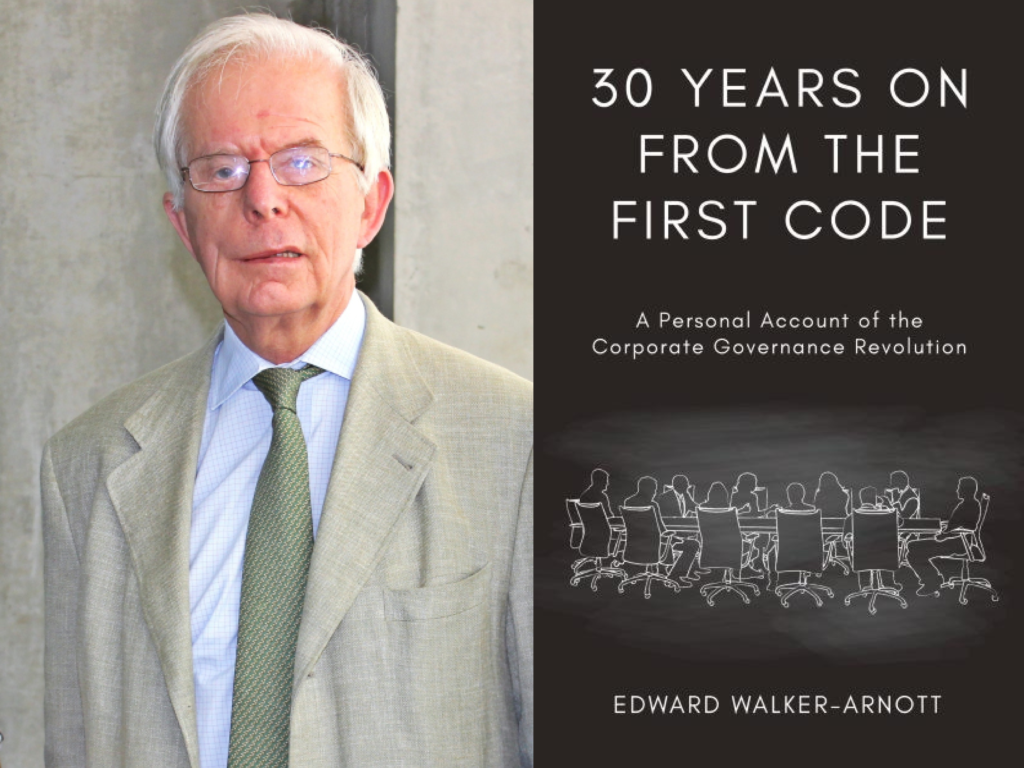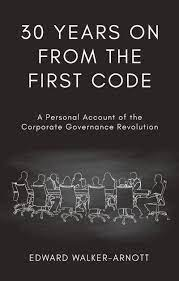
Interview with Edward Walker-Arnott KC
We were delighted to have the opportunity to talk to Edward Walker-Arnott KC – former senior partner at Herbert Smith and hugely experienced non-executive director.
With the recent publication of his book “30 years on from the first Code: a personal account of the Corporate Governance Revolution” – we have extrapolated some of the themes and topics for this interview to share with our network of experienced non-executives.
You’ve got a very interesting cross-sector view on governance from operating on so many different boards. How different does the role of the board feel across each of the sectors you’ve operated in and where did you see key themes?
Everyone on the board must understand the business or organisation: what is the operating model and what is the purpose. That sounds very trite but it’s extraordinary how often those sitting on the board don’t really know what the organisation they are acting for is about.
The importance of the chair is an absolute constant across all sectors – the ability to organise and follow the agenda, get the board to operate as a team and make collective decisions.
The chair and chief executive relationship is also vital – it can be that they are too close or too far apart, but ultimately they should be able to work together and take ideas to the board.
With charities there is a specific consideration – being a board member is typically not remunerated. Many regard being a charity board member a privilege and they’re not assiduous in their attendance or attention, but board members should still be selected carefully in these organisations and be aware of the operating model and purpose as much as a listed organisation.
What specific provisions within The Code have been particularly effective in promoting good governance practices and what challenges have emerged?
The most obvious one to me is that you shouldn’t combine the office of chair and chief executive. That’s absolutely critical in terms of managing a dominant individual. It’s really impossible for an executive chair to conduct a deliberately careful examination by the board of a proposal for the organisation.
I also believe it is fundamental to introduce completely independent non-executives, particularly on remuneration committees. There has been a lot of development in reporting remuneration in listed companies and it is more important than ever to have that independent perspective to give it legitimacy.
The nominations committee is also tremendously important and there should be a very thorough exercise conducted before appointments of the board chair, chief executive and non-executives. It used to be done in a most haphazard and rather ineffective way, but it has hugely improved. We need to ensure that this happens across all sectors and organisations.
An area which needs deeper consideration is that the UK listed sector is contracting, and the private equity sector is expanding. With private equity there is much more privacy and nowhere near the same potential for sanctions or regulation. Governance however does remain extraordinarily important, but it is very difficult to keep oversight on how that is undertaken in that less transparent environment.
What role can external stakeholders, such as regulators and industry bodies, play in promoting adherence to The Code?
Quite honestly, I don’t think a huge amount as the sanctions are not substantial or particularly enforced. Regulators don’t really have the teeth in many instances and more often than not there are no repercussions for non-executive directors. The most powerful thing would be disqualification but that happens so infrequently it is largely irrelevant.
In light of evolving technological advancements, such as Artificial Intelligence and hybrid working models, how should the corporate governance code adapt to meet the changing needs of organisations and stakeholders?
In my view governance applies to how you go about making decisions and not about which areas you decide to focus on. AI and hybrid working are two of the areas you might focus on but they don’t apply to how you make decisions, and so the corporate governance code does not need to be altered because of them.
Does good governance support and encourage entrepreneurialism or is it more likely to stifle it? Why do you think certain geographies such as the US have a more flourishing entrepreneurial community?
There’s simply no doubt that being disciplined, as it were, by the collective responsibility of the board and all the associated compliance is rather out of tune with the character and vigour of progressive entrepreneurs. The concerns around solvency and corporate governance do not chime with entrepreneurs – they are prepared to take risks and they don’t typically want to be constrained by collective responsibility or undertake the reporting in the volume which is required, and which continues to grow.
We are less entrepreneurial in this country, more risk-averse and more compliance prone than the US. Over there the concern of going bust is less of an issue.
We are not seen as a place to support and encourage growth in the same way. The US has a better and more experienced venture capital market, with a bigger appetite for risk. For example, there are a large number of Israeli technology start-ups and they would always look first to the US for funding or expansion and never the UK.
What broader implications does the evolution of The Code hold for the long-term sustainability and success of organisations?
It is possible to have a business which is developing superbly, whose performance is excellent and has a strong long-term trajectory, but in fact has poor governance.
And equally it is the case that you could have a scrupulously well-governed company which is plunging towards disaster because there are so many factors other than good governance involved in the success, or not, of a business.
However, in general good governance encourages constructive challenge of executives from the board. The good discharge of collective responsibility of a board, as opposed to a small group or an individual being the dominant force, is what The Code is all about and should mean less fraud and less business collapses.
In your book you say there are areas where you believe The Code has waded into the political. Can you share examples and how you would like to see it scaled back or changed?
Two examples that I believe are most important are those about the workforce and about diversity. First, the guidance proposes three possible ways of engaging with the workforce, one being that a member of the workforce, identified and appointed by their peers, should be on a board. I think it is a very important point and goes back to 1977 when a committee appointed by the Wilson government argued for workforce representation on boards. But the practical reality of doing it makes it almost impossible. Politicians believe that this is important, but they have no way of enforcing this in law, so they try to use The Code to do this, but it hasn’t been effective.
The guidelines on diversity published with The Code talk about the positive effect on the quality of board decision making by reducing the risk of groupthink. It encourages a broader executive pipeline and puts the responsibility for that on the board, as well as monitoring diversity initiatives. This is a highly politicised area, as it is of great interest to the electorate and the government puts much emphasis on this. However, it is almost too wide-ranging an area and its emphasis may skew attention away from overall corporate governance. It feels like the politicians are using The Code to help enforce diversity across the business sector, rather than actively undertaking their own policies to address it.
If you would like to purchase a copy of the book it can be ordered here.
